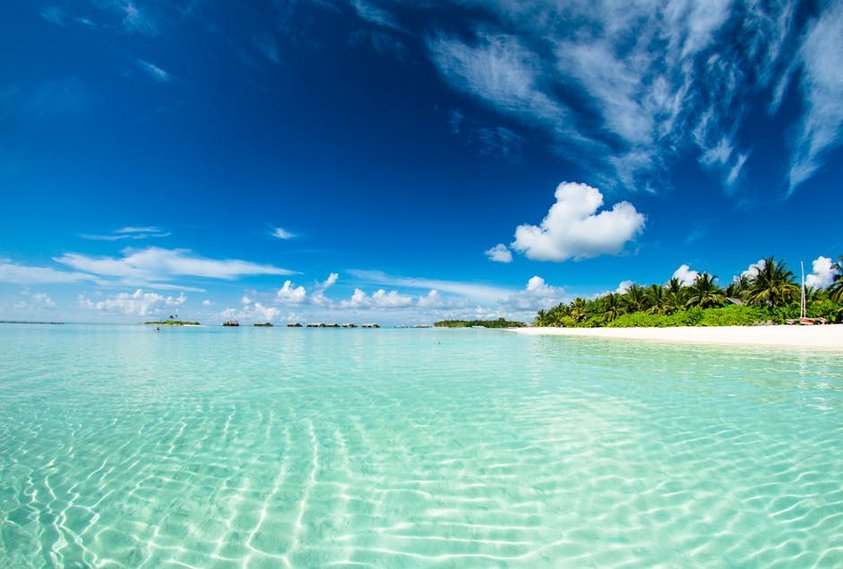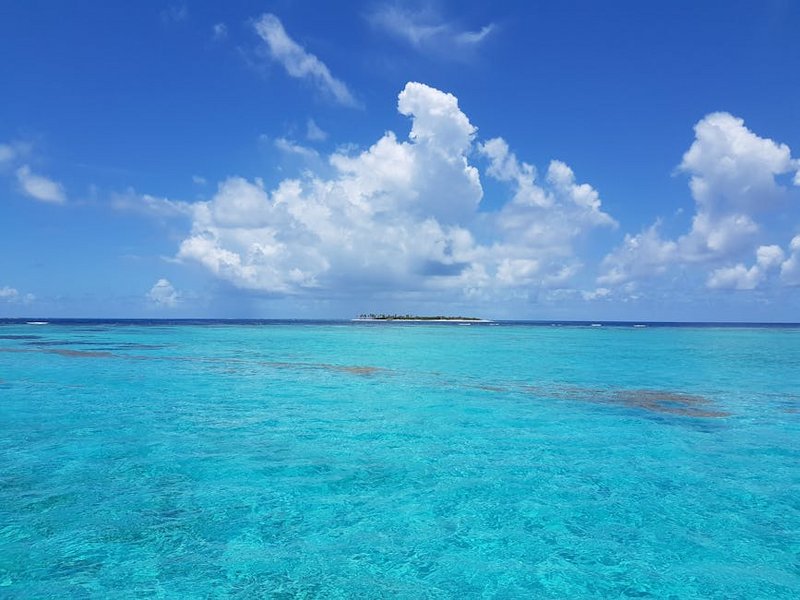Tuvalu Funafuti Atoll: A Secluded Pacific Island Escape
Tuvalu Funafuti Atoll offers an authentic South Pacific experience with its pristine lagoon, traditional culture, and remote island charm. This coral atoll features breathtaking marine biodiversity, historic World War II sites, and welcoming local communities in one of the world’s smallest nations. Your guide covers essential travel planning, must-see attractions, and practical tips for visiting this unique destination.
Essential Tuvalu Information
Tuvalu consists of nine coral atolls scattered across the South Pacific Ocean, with Funafuti serving as the capital and main entry point. The nation spans just 26 square kilometers of land area across its island chain, creating an intimate travel experience. Its maximum elevation reaches only 4.5 meters above sea level, highlighting both its vulnerability and unique geography.
The tropical climate maintains consistent warmth year-round with temperatures between 80-88°F (27-31°C). Rainfall patterns divide the year into drier months from May to October and wetter conditions from November to April. Northeast trade winds provide natural cooling, particularly during the preferred travel season.
Geography and Climate Details
Understanding the physical environment helps with trip preparation.
- Funafuti’s lagoon measures 275 square kilometers with depths to 54 meters, creating exceptional snorkeling and diving conditions throughout the year.
- The atoll’s 33 islets form a protective barrier around the central lagoon, with Fongafale Island hosting most government services and accommodations.
- Tidal fluctuations of 1-2 meters daily expose extensive reef platforms perfect for exploration during low tide periods.
- Budget travelers should anticipate $70-100 daily covering basic guesthouses, local eateries, and bicycle rentals, with flights from Fiji costing $400-600 roundtrip depending on season.
- Mid-range visitors will spend $150-250 daily including comfortable hotels, restaurant meals, and guided lagoon tours, plus inter-island boat transfers averaging $50-80 per excursion.
- Luxury experiences approach $300-500 daily featuring the best accommodations, private boat charters, and customized cultural activities, though premium options remain limited.
- Tuvalu Tourism Office
- CIA World Factbook – Tuvalu
History and Cultural Background
Tuvaluan culture reflects Polynesian traditions with distinctive local adaptations developed over centuries. European contact began with Spanish explorers in the 16th century, though the islands remained largely self-governing until British colonial administration in the 1890s. Independence arrived in 1978, establishing one of the world’s youngest sovereign nations.
Traditional skills like outrigger canoe building, pandanus weaving, and fatele dancing remain vibrant aspects of daily life. Community values emphasize sharing and cooperation, visible in the maneapa meeting houses found in each village. Christianity plays a central role, with Sunday observance maintaining particular importance across the islands.
Key Travel Facts
Practical information helps with initial planning.
Tuvalu uses the Australian dollar (AUD) alongside its own Tuvaluan dollar coins, with credit cards accepted only at major hotels. English serves as an official language alongside Tuvaluan, facilitating communication for international visitors. The international date line positions Tuvalu among the first countries to welcome each new day.
Planning Your Tuvalu Funafuti Atoll Trip
Organizing your Tuvalu Funafuti Atoll visit requires attention to limited infrastructure and seasonal considerations. International flights arrive just twice weekly from Fiji, making advance booking essential particularly during peak travel periods. Accommodation options range from basic guesthouses to the government-run Vaiaku Lagi Hotel, all requiring early reservations.
Travelers should prepare for cash-based transactions since ATMs remain unavailable and credit card acceptance stays limited to a few establishments. Comprehensive travel insurance with medical evacuation coverage proves crucial given the remote location and limited healthcare facilities. Pack lightweight clothing, reef-safe sunscreen, and waterproof bags for occasional heavy tropical downpours.
Visitor permits arrive automatically upon arrival for most Western passport holders, allowing 30-day stays for tourism purposes. The Tourism Department provides helpful orientation materials at the airport, including maps and cultural guidelines. Remember that internet connectivity remains unreliable, encouraging a truly disconnected island experience.
Best Time to Visit Funafuti
Visit between May and October for optimal weather conditions with lower humidity and reduced rainfall. Daytime temperatures typically range from 82-86°F (28-30°C) during these months, complemented by steady northeast trade winds. This period also coincides with several cultural festivals and optimal marine visibility.
November through April brings higher humidity and increased precipitation, though travel during this season offers lower accommodation rates. Cyclone season peaks from January to March, occasionally disrupting travel plans with flight cancellations. Shoulder months of April and November provide reasonable compromise options with moderate conditions.
Budget Planning and Costs
Tuvalu travel requires realistic financial planning.
Essential Preparation Checklist
Medical preparations include updated routine vaccinations plus hepatitis A and typhoid protection recommended by health authorities. Pack sufficient prescription medications since pharmacy stocks remain limited, along with comprehensive first-aid supplies including antiseptics and bandages. Mosquito repellent with DEET or picaridin proves essential year-round for dengue fever prevention.
Documentation needs include a passport valid six months beyond travel dates, return flight confirmation, and sufficient funds proof. Make accommodation reservations before departure since walk-in availability stays extremely limited throughout the year. Download offline maps and translation apps since cellular data coverage remains inconsistent outside the main island.

Alt: “funafuti-atoll-aerial-view-lagoon-coral-reefs”
Top Attractions and Activities
Funafuti’s compact geography concentrates remarkable experiences within easy reach of the main settlement. The spectacular lagoon forms the centerpiece of activities, offering world-class snorkeling directly from shorelines in many locations. Traditional village life continues unchanged in many respects, providing authentic cultural immersion opportunities.
World War II history remains visible through decaying aircraft wreckage and military installations scattered across the atoll. Conservation areas protect critical marine and bird habitats, accessible through guided tours supporting local environmental efforts. Each islet within the atoll possesses unique characteristics worth exploring during day trips.
Must-See Highlights
Funafuti Conservation Area encompasses 33 square kilometers of protected reef, lagoon, and islet ecosystems teeming with marine life. Access requires joining guided tours departing from Fongafale, with fees directly supporting conservation programs. The area shelters 200 coral species and 600 fish varieties within its boundaries.
Tuvalu Philatelic Bureau produces collectible stamps famous among enthusiasts worldwide, offering unique souvenirs reflecting local culture and environment. The bureau operates weekday hours near the government buildings, with knowledgeable staff explaining design inspirations. Philatelic sales represent a significant revenue source for the small nation.
David’s Drill Site marks where scientists attempted to prove Darwin’s theory of atoll formation through deep core sampling in 1897. The site near Fongafale’s airport features informational plaques explaining the geological significance. This location provides fascinating insight into Pacific geological history.
Hidden Gems and Local Favorites
Tepuka Islet lies just 30 minutes by boat from Fongafale, featuring pristine beaches and excellent snorkeling opportunities away from main settlements. Local fishermen occasionally transport visitors for reasonable fees, though arrangements require flexibility with timing and weather conditions. The islet’s coconut groves and birdlife create perfect day excursion destinations.
Funafuti’s maneapa community houses host frequent traditional dances and social gatherings, often welcoming respectful visitors. Check with your accommodation about upcoming events, remembering to dress modestly and contribute to customary gift exchanges. These experiences provide genuine cultural connection beyond standard tourist activities.
Water Activities and Marine Exploration
Lagoon snorkeling reveals spectacular coral gardens just meters from shorelines, particularly along the ocean-side reef passages. Marine life includes parrotfish, angelfish, and occasional reef sharks in crystal-clear visibility often exceeding 30 meters. Local guides know optimal spots for encountering sea turtles and eagle rays during seasonal migrations.
Traditional fishing expeditions with local boat owners demonstrate ancient techniques using hand lines and sustainable methods. These half-day trips typically cost $50-80 per person including equipment and refreshments, with catches often prepared for shared meals. The experience combines cultural education with practical seafaring skills.
Practical Travel Information
Transportation within Tuvalu remains basic yet adequate for island exploration. Funafuti International Airport (FUN) receives Fiji Airways flights from Nadi each Tuesday and Friday, with connections available through Suva. The airstrip doubles as a community sports field during non-operational hours, reflecting the island’s adaptable infrastructure.
Accommodation options concentrate on Fongafale Island, ranging from family-run guesthouses to the government-operated hotel. Book months in advance particularly during peak season from June to September, when availability becomes extremely limited. Most establishments provide airport transfers and basic meal services.
| Category | Options/Features | Price Range (USD) |
|---|---|---|
| Budget Accommodation | Family guesthouses with shared facilities, basic meals included, cultural immersion | $40-70/night |
| Mid-Range Hotels | Private bathrooms, air conditioning, limited restaurant services, airport transfers | $100-180/night |
| Transportation | Bicycle rentals, motorbike hires, boat transfers to outer islets, walking distances | $5-50/day |
| Activities & Tours | Lagoon snorkeling trips, cultural performances, fishing expeditions, conservation area visits | $25-100/experience |


